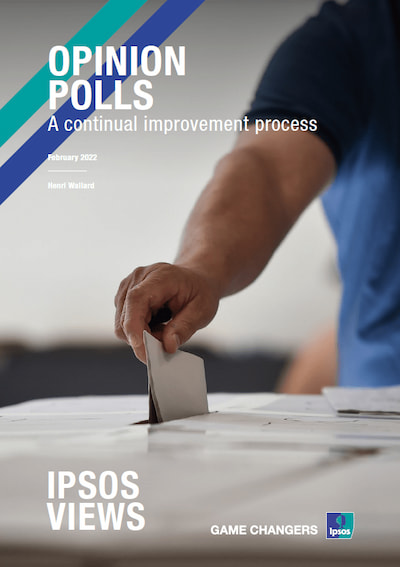Opinion Polls: A continual improvement process
 Political opinion polls have come under a high level of examination for decades, especially in the run-up to elections. And depending on how close they are to the outcome, opinions of polls themselves can swing between criticism and praise.
Political opinion polls have come under a high level of examination for decades, especially in the run-up to elections. And depending on how close they are to the outcome, opinions of polls themselves can swing between criticism and praise.
After the election of Joe Biden as US President in 2020, The Atlantic published an article entitled “The Polling Crisis is a Catastrophe for American Democracy”. Yet, in the wake of the 2019 British General Election, the BBC noted: “Opinion poll accuracy holds up”. So, in the end, what should we think?
This Ipsos Views paper tackles these questions head on, presenting an overview of the academic literature on the topic and explaining the practice of polling in different countries and contexts. The aim being to enable the reader to evaluate opinion polls for themselves.
Polls play a positive role in democracies, delivering honest and independent measurement of public opinion. Against the backdrop of recent election polling, this paper demonstrates how the methodologies on which political opinion polls are based has been developed from rigorous technical and scientific research.
After the experience of Brexit and the 2016 US elections, Ipsos conducted a thorough review of how it carries out polling and made some key decisions on how we will operate differently in light of these learnings. In this paper, we reflect on these recent experiences and consider how the practice of opinion polling is evolving in today’s volatile environment.
When the polls appear to have lacked precision, one popular assumption is that an opinion poll itself is an inappropriate methodology for capturing public opinion. In fact, the fault often lies with the practical methods implemented in a particular election. In other cases, the problem is not the method used itself, but the misinterpretation of a poll’s findings.
The paper also examines new methodologies and innovations in polling that Ipsos has adopted to improve the accuracy of its election predictions, as well as common challenges pollsters face and common pitfalls to watch out for.
Political opinion polls remain the public face of the research industry, and an important source of information for the media, the public, and decision-makers. This means that there is a great responsibility to get them right.
This paper has been revised and updated ahead of the French Presidential elections taking place in April of this year. For more information, see the dedicated home page for all Ipsos coverage here.
Ipsos conducts political opinion polling across the world, including for instance, polling ahead of the upcoming Australian, Brazilian and US midterm elections.



![[Webinar] KEYS: What can we learn from what happened in 2025?](/sites/default/files/styles/list_item_image/public/ct/event/2025-12/keys-webinar-what-happened-in-2025-carousel.webp?itok=1gJKCCxx)